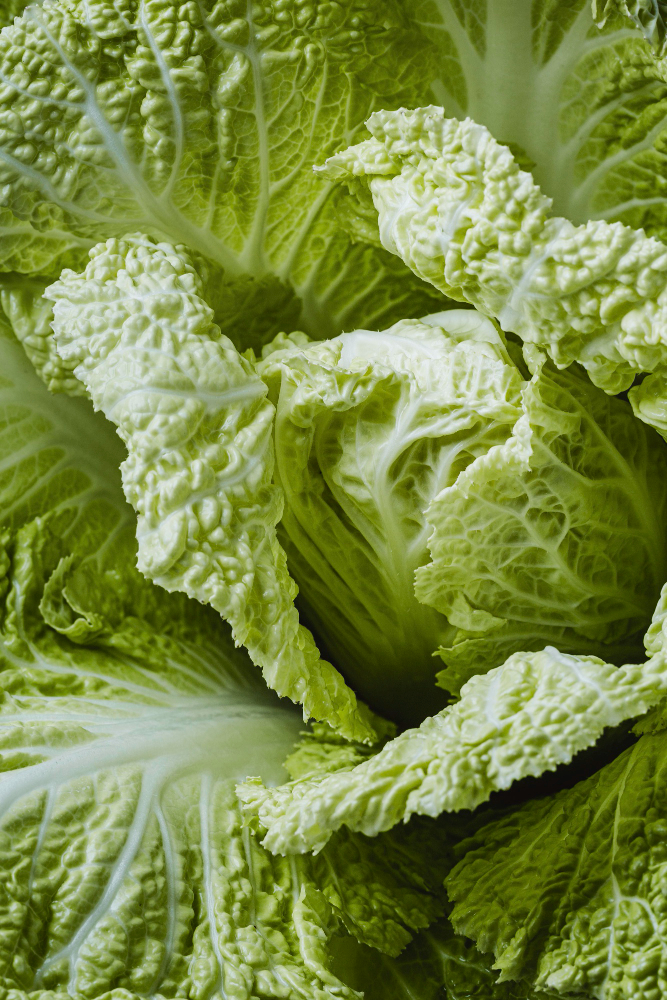Savoy cabbage, also known simply as savoy, is a leafy green vegetable from the Brassicaceae family, featuring crisp leaves with a deep green color. This versatile vegetable is widely used in various global cuisines due to its distinctive flavor and adaptability in cooking.

Rich in nutrients such as Vitamins A, C, and K, potassium, calcium, and fiber, savoy cabbage offers numerous health benefits. Its advantages include aiding digestion thanks to its fiber content, supporting heart health with its vitamins and antioxidants, and promoting bone health due to its calcium and Vitamin K levels. Savoy cabbage is particularly recommended for those looking to maintain a balanced, nutrient-rich diet and can be an excellent addition to a variety of dishes like soups, salads, and main courses. However, some individuals might need to avoid or limit savoy cabbage consumption, especially those with gastrointestinal issues such as gas and bloating, as cruciferous vegetables can be hard to digest for some people. Additionally, individuals on anticoagulant medications should consult their healthcare provider before consuming large amounts of savoy cabbage, as its Vitamin K content may interfere with these medications. Generally, savoy cabbage can be a nutritious and delicious part of a balanced diet, but it is best enjoyed in moderation, considering individual dietary needs.
TYPICAL SEASONALITY
Savoy cabbage is typically considered a winter vegetable, with its peak season falling during the colder months of the year. In many regions, savoy cabbage is most abundant and fresh during the fall and winter, when it can be successfully grown and harvested. During these months, you are more likely to find it fresh at local markets and grocery stores. However, thanks to modern agricultural practices, savoy cabbage can also be found in other seasons of the year, though its availability may vary, and prices may be higher outside the peak season.
Nutritional Values
| Nutrient | Value |
|---|---|
| Calorie | 25 kcal |
| Protein | 1,9 g |
| Fat | 0,1 g |
| Carbohydrates | 5,8 g |
| Fibre | 2,7 g |
| Zuccheri | 2,5 g |
| Vitamina A | 2330 IU |
| Vitamina C | 36,6 mg |
| Vitamina K | 41 µg |
| Folati | 53 µg |
| Calcio | 42 mg |
| Ferro | 0,4 mg |
| Potassio | 289 mg |
| Magnesio | 12 mg |
